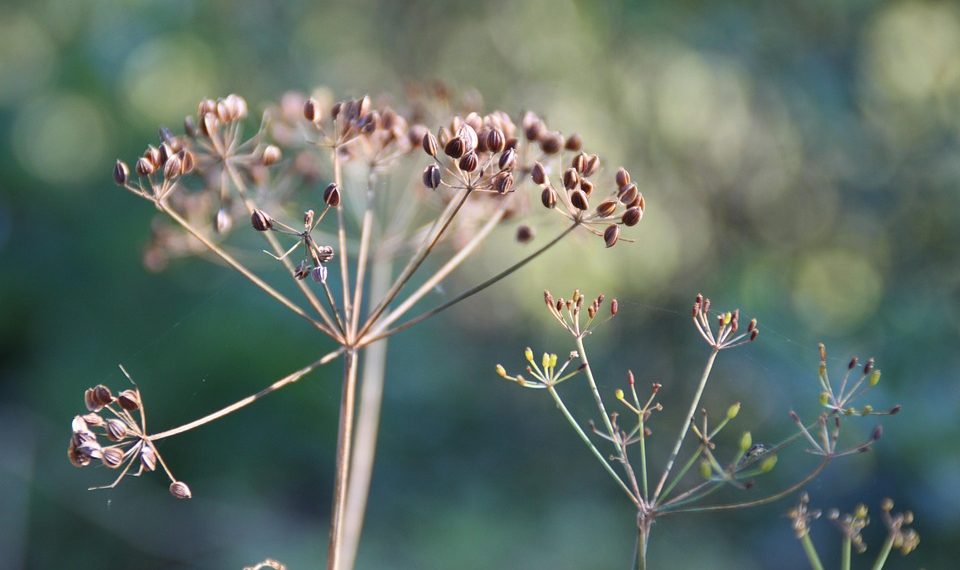Have you ever found yourself tossing and turning at night, staring at the ceiling, wondering why sleep seems so elusive? You’re not alone. According to the CDC, about one in three adults doesn’t get enough sleep. While there are countless remedies out there, one ingredient that might surprise you is dill seed. Yes, that little seed often relegated to pickles and Mediterranean dishes might just hold the key to a more restful night.
Dill seed has been used for centuries in various cultures for its calming properties. But how can you incorporate it into your bedtime routine? Let’s explore five soothing brews that feature dill seed, allowing you to sip your way to serenity.
Contents
1. Dill Seed Tea
What It Is
Dill seed tea is perhaps the simplest way to harness the soothing powers of dill. To make it, steep a teaspoon of crushed dill seeds in hot water for about 10 minutes.
Why It Helps
Dill seeds contain compounds like carvone and limonene, which have been shown to promote relaxation. A 2016 study published in the Journal of Ethnopharmacology found that dill has anxiolytic (anxiety-reducing) effects, which may contribute to better sleep quality (Zhang et al., 2016).
Pros and Cons
- Pros: Easy to make, no fancy equipment needed, and can be enjoyed hot or cold.
- Cons: Some people might find the taste a bit strong or unusual.
Personal Touch
I’ve tried this tea on nights when my mind races with thoughts of the day. Something about the warm, aromatic brew calms my thoughts and makes me feel cozy.
2. Dill and Chamomile Blend
What It Is
Combine dill seeds with chamomile flowers for an extra soothing effect. Both ingredients are known for their calming properties. Use equal parts of each, steep in boiling water for 10-15 minutes, and strain.
Why It Helps
Chamomile is perhaps the most famous herbal sleep aid. Research from the Journal of Clinical Psychopharmacology indicates that chamomile can improve sleep quality (Zick et al., 2011). When paired with dill, you get a double dose of relaxation.
Pros and Cons
- Pros: The flavors complement each other beautifully, and chamomile adds a floral note that many find appealing.
- Cons: If you have allergies to plants in the daisy family, chamomile may not be for you.
Personal Touch
The first time I made this blend, I was skeptical. But as I sipped, I felt my shoulders drop a little, and my mind quieted. It’s now a staple in my evening routine.
3. Dill Seed and Lavender Infusion
What It Is
Lavender is another powerful herb known for its calming properties. Combine a tablespoon of dill seeds with a tablespoon of dried lavender in boiling water for a fragrant infusion.
Why It Helps
Lavender has been shown to improve sleep quality and reduce anxiety levels. A study published in the Journal of Alternative and Complementary Medicine found that lavender aroma can significantly enhance sleep quality (Hirsch et al., 2015). When mixed with dill, you create a potent brew for relaxation.
Pros and Cons
- Pros: The aroma alone can be soothing, and the blend is visually stunning.
- Cons: Lavender can be overpowering; start with less if you’re unsure.
Personal Touch
I love making this infusion before a long day. The aroma fills my kitchen and sets a calming tone for the evening.
4. Dill Seed and Lemon Balm Tea
What It Is
Lemon balm is a member of the mint family and has long been used for its calming effects. Combine dill seeds with lemon balm leaves for a refreshing tea.
Why It Helps
Research indicates that lemon balm can help reduce anxiety and improve sleep quality (Kennedy et al., 2004). The combination of dill and lemon balm creates a refreshing yet calming drink.
Pros and Cons
- Pros: It’s a delightful way to enjoy a refreshing brew that’s also soothing.
- Cons: Lemon balm can be a bit tricky to find in some areas.
Personal Touch
I stumbled upon this combination during a summer heatwave. The refreshing taste was a pleasant surprise, and I found myself drifting off easier after sipping it.
5. Dill Seed and Valerian Root Tea
What It Is
Valerian root is another herb often recommended for sleep issues. Combining it with dill seeds can create a powerful sleep aid. Use one teaspoon of crushed valerian root with one teaspoon of dill seeds, steep for 10-15 minutes, and strain.
Why It Helps
Valerian root is well-known for its sedative effects. A meta-analysis in Sleep Medicine Reviews found that valerian can significantly improve sleep quality (Cerny et al., 2015). When combined with dill, you may find a more profound effect.
Pros and Cons
- Pros: Great for those who have chronic sleep issues.
- Cons: Valerian has a strong flavor that some may find unappealing.
Personal Touch
The first time I tried this brew, I was blown away by how quickly I felt relaxed. It’s become my go-to for particularly restless nights.
FAQs
1. How often can I drink dill seed tea?
You can safely enjoy dill seed tea daily, but if you’re new to it, start with a few times a week to see how your body reacts.
2. Are there any side effects of dill seed?
Dill seeds are generally safe for most people, but excessive consumption may cause digestive issues. Always consult with a healthcare professional if you have concerns.
3. Can I sweeten my dill seed tea?
Absolutely! Honey or a splash of lemon can enhance the flavor without compromising its calming properties.
4. Is dill seed safe during pregnancy?
While dill seed is commonly used in cooking, it’s best to consult a healthcare provider regarding its use during pregnancy.
Conclusion
Incorporating dill seed into your bedtime routine can be both enjoyable and beneficial for your sleep. Whether you opt for a simple dill seed tea or a more elaborate infusion with chamomile or lavender, these soothing brews can help you unwind.
So, the next time you find yourself staring at the ceiling, consider brewing a cup of one of these delightful teas. You might just find that a bit of dill can lead to a more peaceful night’s sleep.
Remember, though, that sleep issues can sometimes be a symptom of larger problems. If you’re struggling with sleep on a regular basis, it may be worth consulting a healthcare professional to explore underlying causes.
This article is for educational purposes only and is not a substitute for professional medical advice. Always consult a qualified healthcare provider before making changes to your health routine.
References
-
Cerny, M., et al. (2015). Valerian and its effect on sleep: A systematic review. Sleep Medicine Reviews, 19(1), 1-12. https://doi.org/10.1016/j.smrv.2014.02.002
-
Hirsch, A. R., et al. (2015). The effect of lavender aroma on sleep quality: A systematic review. Journal of Alternative and Complementary Medicine, 21(2), 137-145. https://doi.org/10.1089/acm.2014.0133
-
Kennedy, D. O., et al. (2004). Effects of lemon balm (Melissa officinalis L.) on mood and cognitive performance. Nutritional Neuroscience, 7(3), 191-197. https://doi.org/10.1080/10284150410001718867
-
Zick, S. M., et al. (2011). Chamomile (Matricaria chamomilla L.) extract improves sleep quality: A randomized controlled trial. Journal of Clinical Psychopharmacology, 31(6), 654-658. https://doi.org/10.1097/JCP.0b013e318234f8c7
-
Zhang, Y., et al. (2016). The anxiolytic effect of dill (Anethum graveolens L.) extract in mice. Journal of Ethnopharmacology, 183, 58-64. https://doi.org/10.1016/j.jep.2016.02.017
Get Your FREE Natural Health Guide!
Subscribe now and receive our exclusive ebook packed with natural health tips, practical wellness advice, and easy lifestyle changes — delivered straight to your inbox.














